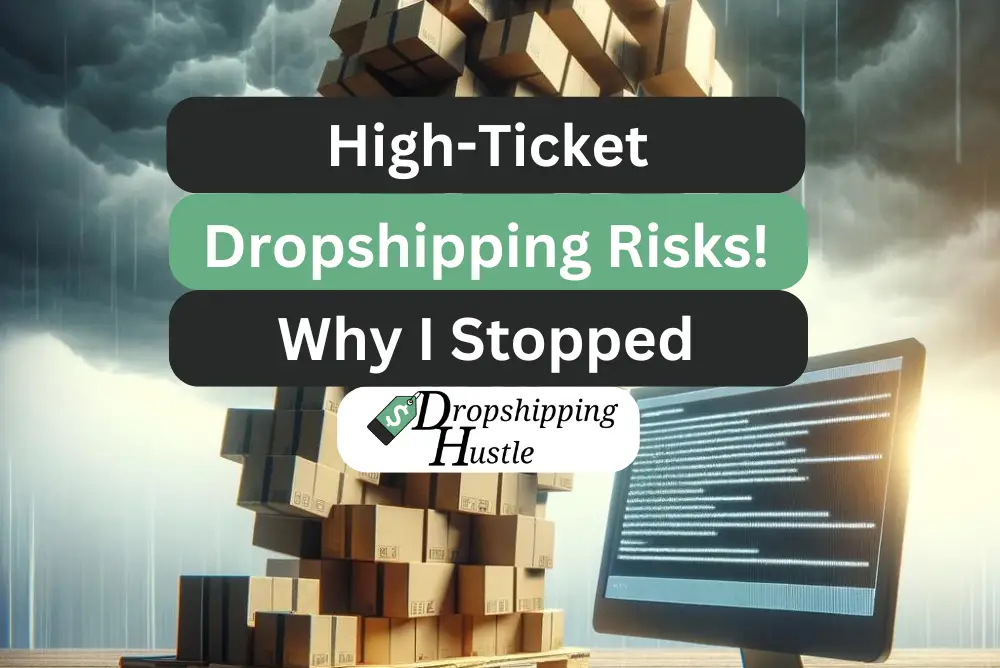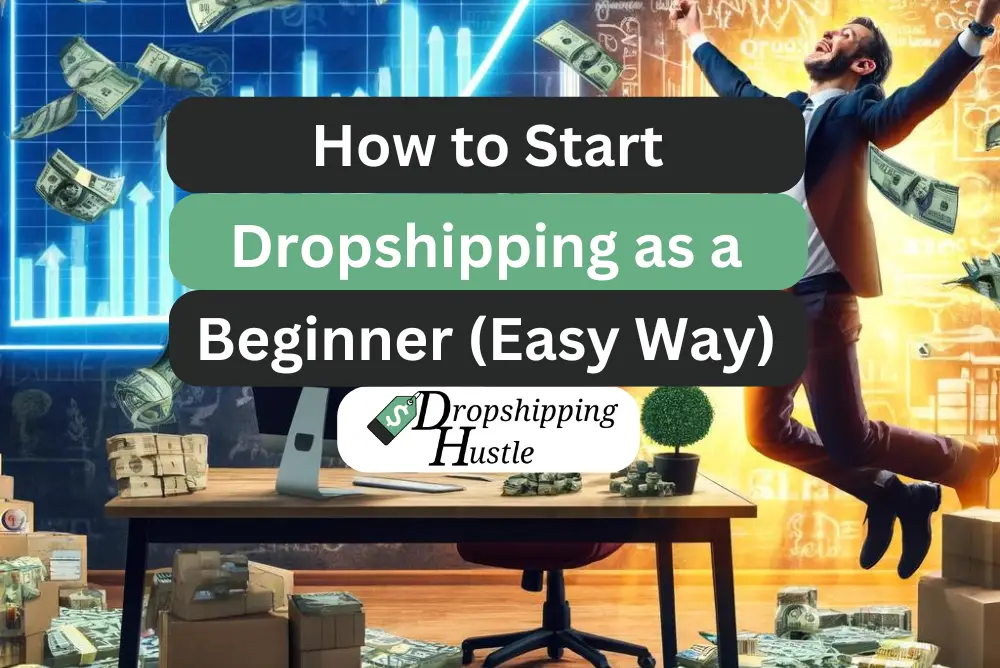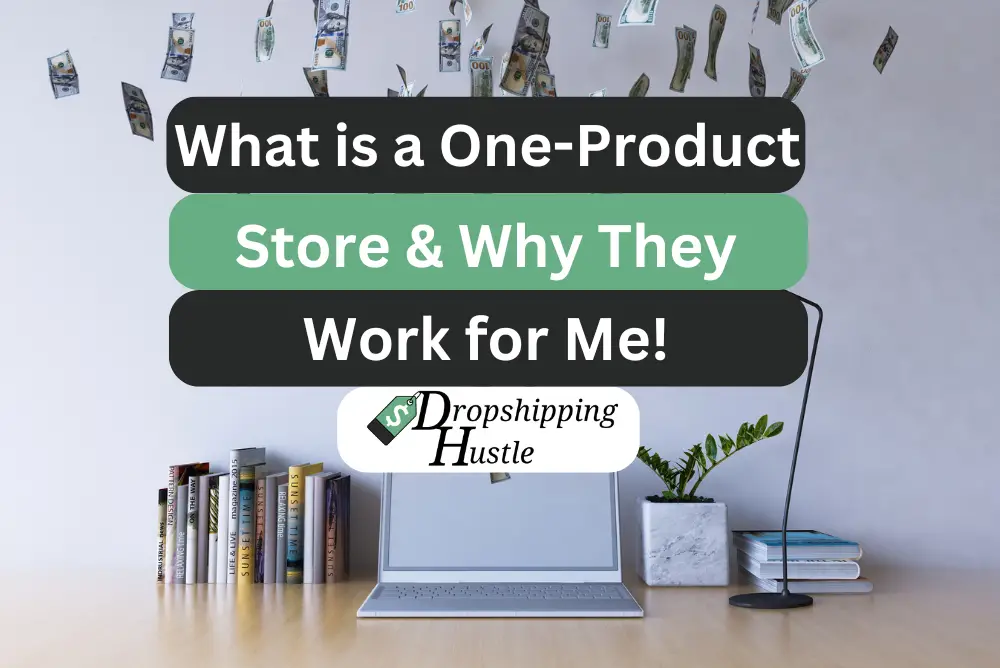If you’ve Googled the meaning of a dropshipper, you probably received a brief generic description that may have left you with even more questions. Hopefully, I can give you a more detailed and accurate definition as I have been a dropshipper since 2016
In this article, I’ll cover exactly what a dropshipper is, the work they do, the tasks they perform, the skills they possess and even the pros and cons.
What is the Meaning of a Dropshipper?
A dropshipper is a person who runs an e-commerce business that fulfills orders via the dropshipping business model. Instead of manually fulfilling orders in the conventional method, a dropshipper uses a third-party supplier to ship the products directly to the customer on their behalf.
The third-party supplier can be a wholesaler, distributor, manufacturer or online marketplace that stores the inventory as well as picks, packs and ships the products individually as sales are made on the dropshippers online store.
The dropshipper sells the products online at a high enough price point that covers the cost of the product and shipping whilst still leaving an adequate profit margin. The dropshipper typically pays the supplier upfront for orders made.
An average salary for a successful dropshipper is between $2,000 and $10,000 per month. However, these are averages and income can vary drastically. Many dropshippers make over $100,000 per month whilst others are running at a loss after expenses.
With the popularity of dropshipping in the USA and 69.67% of Shopify domains registered in the USA, you can expect the vast majority of dropshippers to be based in the USA.
Click here for a FREE Shopify trial and 3 months of Shopify for Only $1
What is the Work of a Dropshipper?
A large part of the logistics is out of a dropshippers hands, there are many tasks that are still required by a dropshipper to run a successful dropshipping business.
Whilst some dropshippers will purchase an established dropshipping business from websites such as Empire Flippers, the vast majority of dropshippers build their own dropshipping store from scratch.
Let’s go through the work and tasks required for a dropshipper to build a dropshipping business:
1. Product/Niche Selection
Performing product research is one of the most critical tasks for a dropshipper. By accurately identifying trends and analyzing in-demand products and niches will drastically increase the chances of success.
2. Competitor/Market Research
With the abundance of competition, dropshippers have to gather and analyze information from competitors to help find opportunities and gaps in the market to exploit.
3. Sourcing/Onboarding Suppliers
Suppliers are essentially business partners for a dropshipper which make working with reliable suppliers vital. Dropshippers source and arrange terms with suppliers including pricing, shipping and product quality.
For more info, check out my article on how to approach a company to become a supplier.
4. E-commerce Store Design
Building a dropshipping store has become easier for dropshippers with platforms such as Shopify. Experienced dropshippers can create a professional Shopify store with a domain name and logo within a day.
5. Store Branding & Optimization
Dropshippers brand a store so it resonates with their target audience which includes color scheme, logo, copywriting, images and more. The store must be fully optimized for optimal conversion rate and average order value.
For more information, I have an article on how to brand an e-commerce store.
6. Marketing/Advertising
Marketing for dropshippers includes paid advertising on platforms such as Facebook, Google and TikTok as well as driving traffic using various social media platforms.
What Do Dropshippers Do Daily?
The day-to-day tasks of a dropshipper will vary depending on the size of the dropshipping store, the types of products being sold and many other factors.
Below is a list of common daily tasks a dropshipper performs, however, most dropshippers hire a virtual assistant to outsource several of these tasks as their business grows.
1. Order Fulfillment
Fulfilling orders should be done on a daily basis for dropshippers, however, there are several automatic order fulfillment tools available. Managing and forecasting inventory will be a task for some dropshippers depending on their business.
2. Optimization
Dropshippers will split-test many variables such as product pages, offers, ad creatives and the list goes on. Optimization is an ongoing process that requires regular monitoring.
3. Shipping
Whilst the shipping and logistics side of the business is typically out of a dropshippers hands, some dropshippers will have to manage inventory, upload tracking numbers and organize freight forwarders.
4. Communication with VA
As a dropshipping business expands, most dropshippers will organize a virtual assistant to run many of the day-to-day operations requiring regular communication and updates.
5. Customer Service
Customer service for a dropshipper involves replying to inquiries, emails, and messages as well as providing order status updates and tracking information.
6. Updating Website/Product Information
Maintaining a website for a dropshipper includes updating product listings, information and images as well as technical issues such as broken links and page speed.
7. Communication with Suppliers
Regular communication with suppliers for dropshippers is important as there are always issues that will arise and having a strong relationship will be beneficial for both parties.
8. Analyzing Metrics
Monitoring sales, traffic, conversion rates, ad performances and every other metric is a daily task dropshippers perform for optimization, scaling and being able to identify patterns and trends.
9. Social Media
Depending on the strategy and target audience, most dropshippers utilize social media and this will include adding fresh content and new posts.
What Are the Skills Required by a Dropshipper?
As with any profession, the more skills you possess the easier it will be to succeed and dropshipping is no exception. Most dropshippers don’t get started with a ton of skills but most learn the skills as they progress.
Below is a list of the skills most dropshippers have that help them succeed.
Online Digital Skills
Dropshippers don’t typically need to be tech-savvy to build a professional dropshipping store, however, it definitely helps. Website-building platforms such as Shopify make it fast and easy to create store that looks like it was built by an expert.
The more technical dropshippers usually have an advantage when it comes to backend code for customizations and optimizing SEO. Below are some of the digital skills most dropshippers use in their business:
- Website design
- Optimizing images and videos with tools such as Glorify
- SEO
- Accounting and bookkeeping
- A/B testing
- HTML for customization
Marketing
Marketing is a skill successful dropshippers excel at. This includes driving organic traffic from social media and Google as well as creating persuasive paid advertising campaigns that resonate with their audience.
Below are common skills a dropshipper has that enable them to be an effective marketer:
- Strategic planning
- Copywriting
- Branding
- Direct response marketing
- Creativity
- Problem-Solving
Communication & Relationships
Being a clear communicator and being able to form relationships with suppliers is an important skill dropshippers need. Building relationships and being able to negotiate better terms is one of the keys to separating the most successful dropshippers from the rest.
Effective communication skills can assist in securing domestic suppliers who typically reject most dropshippers to resell their goods. Relationships can also be vital for dropshippers who are working with Chinese suppliers and are planning to transition into working with dropship agents.
Below are some of the skills dropshippers use in their business:
- Customer service skills
- Supplier relationships
- Negotiation
- Sourcing suppliers
- Networking
- Collaboration skills
Different Types of Dropshippers
I’ve explained the meaning of a dropshipper, now let me explain the types of dropshippers as they can all work a little differently. Whilst the dropshipping model is used in each type, the suppliers, e-commerce platform and advertising strategy vary.
1. AliExpress Dropshipper
First, you have the most common type which is using the Shopify platform to build a website, dropship products from AliExpress and use Facebook or TikTok for paid advertising. Dropshippers love this strategy because it works so effectively with trending products that consumers are yet to be exposed to.
For more information, check out my article on whether AliExpress dropshipping is still a good idea.
2. High-Ticket Dropshipper
High-ticket dropshipping is usually done by partnering with domestic suppliers and selling products over $200 and often above $1,000. These dropshippers use Shopify but focus on Google advertising instead as it costs more but the conversion rate is higher.
For more information, check out my articles on high ticket dropshipping.
3. Online Marketplace Dropshipper
The next type of dropshippers are those that don’t build their own website but sell on marketplaces such as Amazon, eBay and Etsy. By selling on these marketplaces, dropshippers have more competition and lower profit margins but don’t have to pay for traffic. Many dropshippers who sell on Amazon eventually transition to Amazon FBA.
4. POD Dropshipper
Another form of dropshipping is POD (Print on demand). With POD, dropshippers play a more substantial role in the production of the product as they create the design that will be on the product. However, they still never handle the product and a POD supplier still handles the shipping.
These are the main types of dropshippers making a living online. Within these types, there are also sub-sections of dropshipping.
For example, some dropshippers will only build branded one-product stores whilst others will build general stores selling current trends. There are also arbitrage dropshippers who resell goods from retail stores or online marketplaces.
9 Pros & 9 Cons of Being a Dropshipper
Pros
- Low barrier to entry
- Pivoting to a new product or strategy is easy
- Semi-passive income when the business is up and running
- Ability to scale fast
- The entire business can be run from home
- Skills learned as a dropshipper can be used in many industries
- Experience is not essential
- Potential for life-changing money
- A successful dropshipping business is an asset that can be sold
Cons
- The failure rate is high
- Low profit margins
- Competitive
- A large part of the business is reliant on other people
- Unsteady income
- Not a viable option in some countries
- Between $100 and $1,000 is required to get started
- The learning curve can be steep for some people
- There are a lot of unscrupulous dropship suppliers






Leave a Reply